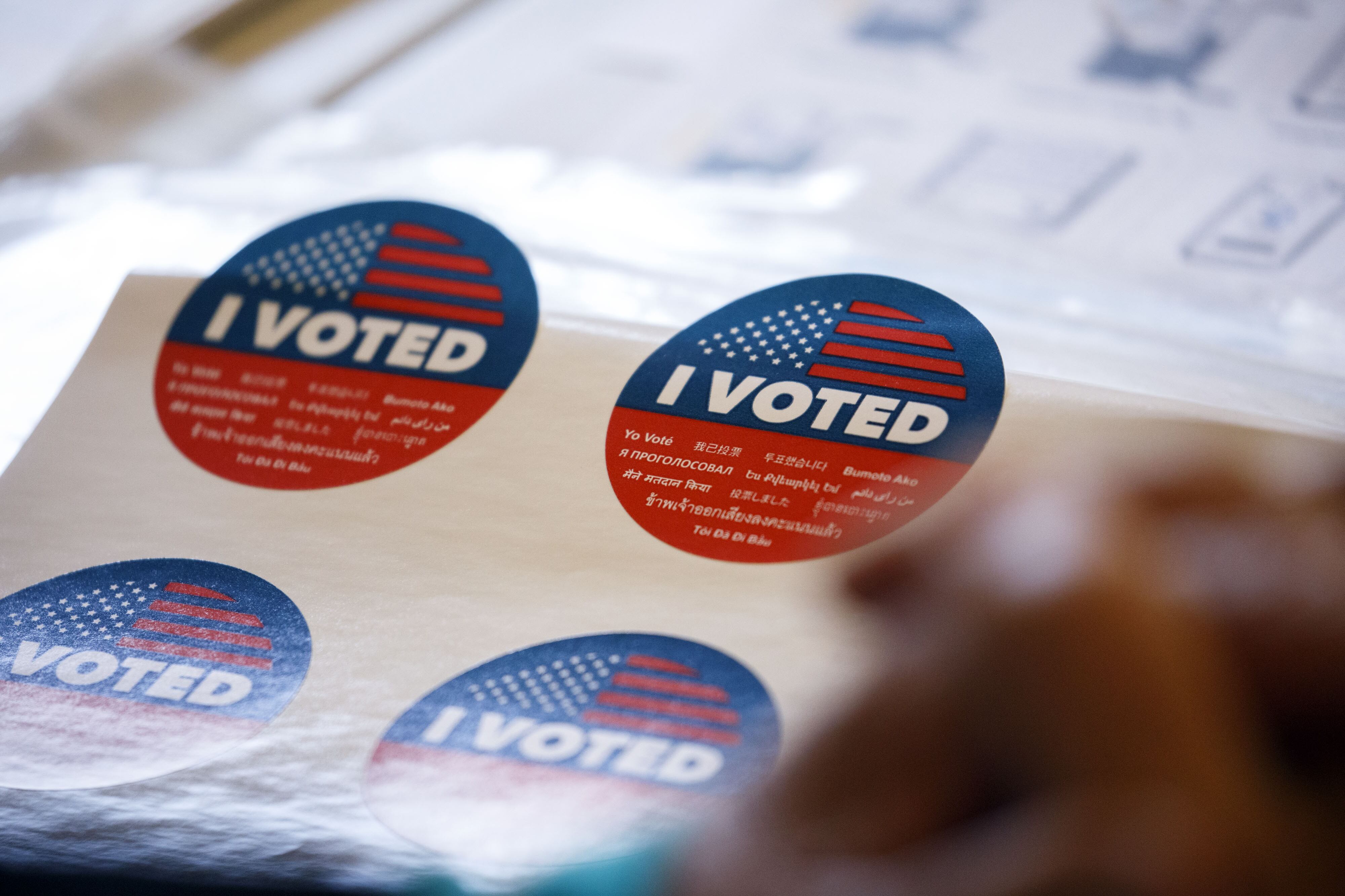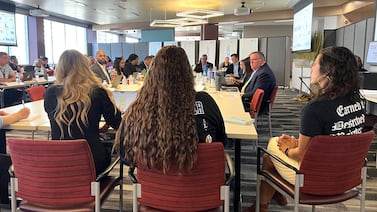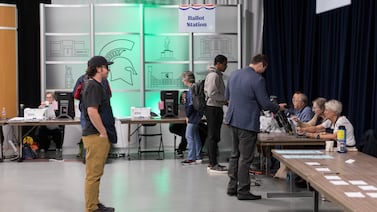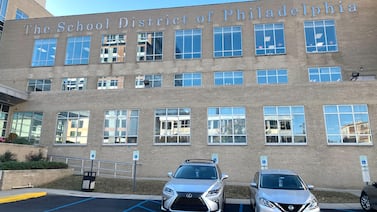Gary voters appeared to be approving a $71.2 million referendum Tuesday night to help their struggling school district dig out of debt and give teachers their first raises in more than a decade.
The referendum was winning 60% of the vote as of 10:42 p.m. It needs a simple majority to pass.
“I’m so thankful to Gary voters for supporting more opportunities for our students and overdue raises for our teachers,” said Paige McNulty, the Gary district manager, in a statement Wednesday morning. “Passing this referendum puts us on the fastest track to ending State control of our schools, and I couldn’t be happier for the entire community.”
The referendum is a do or die for Gary Community Schools, which is still paying off years of debt due to mismanagement. For three years, a private firm has run the district for the state of Indiana, in order to set Gary’s financial and academic house in order. If the referendum passes, the district could be closer to ending the state takeover. The district needs a stable budget for two years before regaining local control.
The referendum would provide $8.9 million annually to the 4,000-student district for eight years. It would cost property owners up to 56.2 cents per $100 in assessed property value. According to the Gary school district website, the average homeowner would pay an additional $6 per month.
None of the referendum funds would go to charter schools, independently operated schools that 58% of students living within the district’s boundaries attend.
If the measure passes, district officials said revenue first would cover annual budget deficits. Then the district would spend about $1 million to provide raises to teachers and other instructional staff. Gary educators have not had an across-the-board raise in 12 years.
District officials said of the remainder, about half would go to address students’ social and emotional needs and to hire more counselors and therapists. Funding would also go toward arts, athletics, and extracurricular activities.
If the referendum does not pass, the district could face severe budget cuts next school year and likely remain under state control for longer. Referendum proponents said the district could face an exodus of teachers and have a hard time recruiting new staff.
Gary schools twice tried and failed to win voter approval of a tax increase. The district sought a $51.8 million referendum in 2015 and a $50 million referendum in 2016, both before the state took over the district.
Three years ago, the state chose the for-profit MGT Consulting Group to run the Gary district.
By December, the company had reduced Gary’s $104 million debt to $79 million, according to McNulty. It brought down the district’s annual deficit to $6 million from $22 million in August 2017. The company is now in the first year of a two-year, $7.4 million extension of its contract.
MGT points out that the district has made progress. It has stabilized enrollment, which nudged up this year, the first sign of growth after a decade of decline.
But critics think that academics have taken a back seat to debt repayments. In campaigning for the referendum, proponents had to battle lingering public disenchantment with the district stemming from a school closure, low student performance, and a steady decline in graduation rates, among other issues.
McNulty said that if the referendum passes, the district will form an oversight committee to review referendum spending.
“We want to make sure that we’re transparent with the dollars that are being spent because of the mistrust of what’s happened in the past with the past leadership,” McNulty said.
Correction: Nov. 4, 2020: This story has been updated to correct how much the emergency manager has reduced the Gary school district’s debt and deficit.






